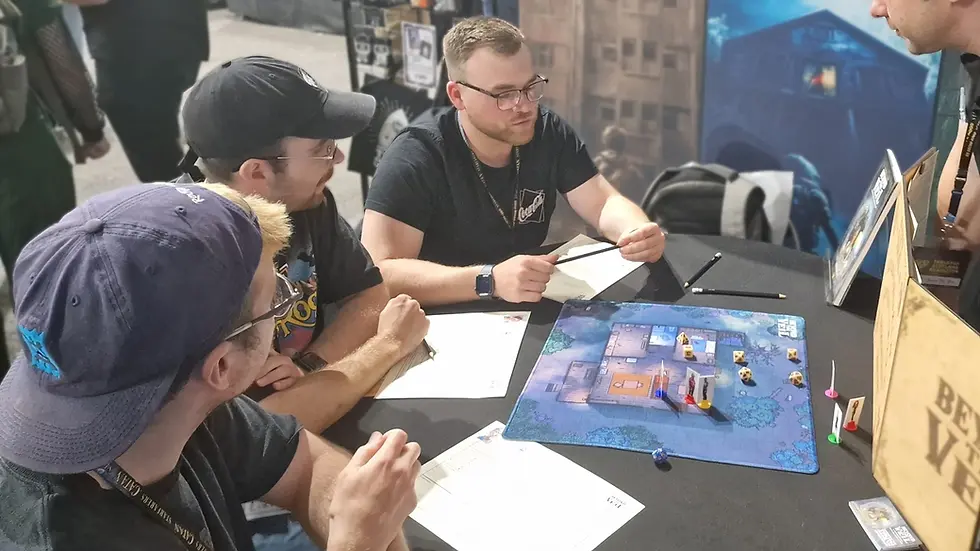How Tabletop Roleplaying Games Support Mental Health
- Wrenegade Studios
- May 12, 2025
- 3 min read
Updated: Jun 25, 2025
This week (May 12th through 18th) sees Mental Health Awareness Week arrive here in the UK. One powerful, often overlooked way to take care of our mental health is the humble tabletop roleplaying game (TTRPG). The very act of collaborative storytelling, with players embodying fictional characters working together to solve problems and overcome obstacles is an incredible source of catharsis at the very least. Beyond that, the social aspect, generally inclusivity, and accessibility of the hobby makes it a perfect outlet for those who wouldn’t consider more formal avenues of therapy. With a huge range of available options for players, from high fantasy to sci-fi, post-apocalyptic to period historically accurate settings there is something for everyone. While the hobby has long been associated with terms like ‘geek’ or ‘nerd’ the shift towards embracing these as positives has been seeing a steady increase over the past few years.
Therapy rolls a natural 20 for stealth!

How tabletop roleplaying games support mental health - At its core, a gaming group embodies the concepts of empathy, imagination, and teamwork. Players take on roles that may mirror their real-world identities or allow them to explore aspects of themselves in a safe, supportive environment. For people managing anxiety, depression, or social difficulties, this can be an affordable and necessary outlet. The structure of the game, combined with creative freedom, allows participants to express emotions, process trauma, and practice social interaction in a low-stakes fashion… a gaming table has always been considered a ‘safe space’ among friend groups.
Therapists have also begun to recognise the value of TTRPGs as useful tools with some even running sessions specifically designed for mental health support. The act of problem-solving with others, confronting fictional adversity, and the simple feeling of ownership over a character’s journey can build self-esteem and resilience while providing a way to explore your own inner-self.
Nurturing communities
With one of the key themes of Mental Health Awareness Week this year being ‘communities’ it seemed only prudent to post our thoughts on how TTRPGs offer a unique opportunity to build sustainable and interchangeable communities of people the world over. Whether around a physical table or through a screen, these games require communication, collaboration, and mutual storytelling. They create meaningful social interactions and strengthen group bonds, something that can be especially valuable for those struggling to find connection in their everyday lives.
Online platforms like Roll20, Discord, and Foundry Virtual Tabletop make it easy for people to find groups and start playing, even if they don’t know anyone locally. Many communities host beginner-friendly games and one-shots (short adventures) that require no prior experience. Local game shops, libraries, and gaming clubs also often host regular public game nights that cater to experienced and new player alike.
Roll for initiative
This Mental Health Awareness Week, consider joining a TTRPG session or starting a campaign with family or friends as a way to nurture your mental wellbeing. Look for local events in your community, most gaming shops or cafés host special sessions throughout the year. Or if you prefer to play online there are many websites, forums, or discord servers that provide group formation options. The r/lfg (Looking For Group) subreddit is a great place to start as are the forums of individual virtual tabletops (VTTs).
If you’re already a seasoned player or have run games in the past, consider hosting a game that welcomes newcomers. You could even host a charity game stream or fundraising session to support mental health organisations ;)
It isn’t just about rules and dice, however, overcoming adversity with the help of friends and strangers alike is something we can all relate to. The support that someone needs but can’t express can be found in the most unexpected of places, and sometimes the most important of journeys can begin with a simple question: “What do you do next?”
































Comments